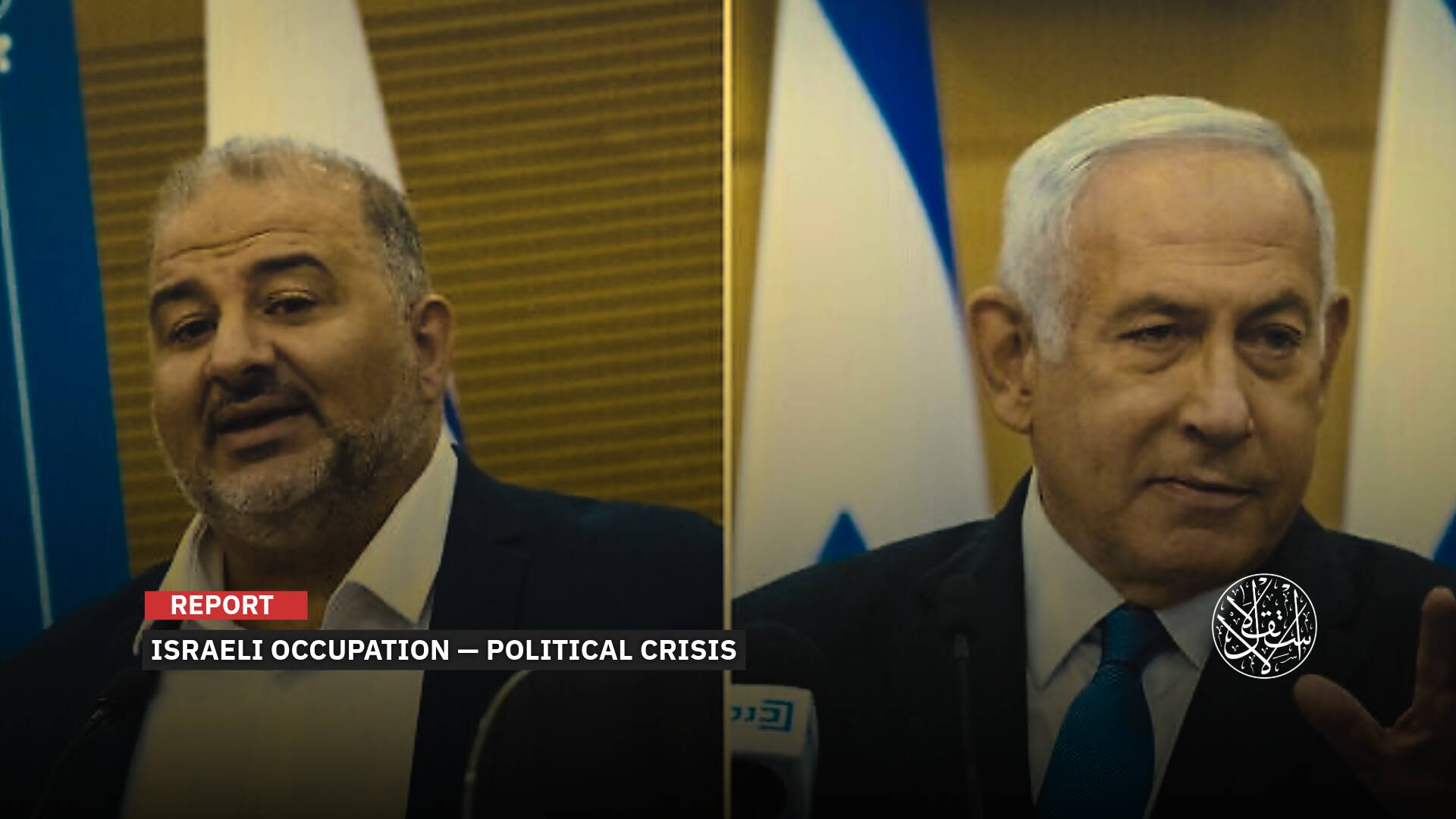Modi Removed Islamic History from the Indian Curriculum: What Does that Mean?

Leaders of extremist Hindu groups seek revenge against Muslims under the pretext of historical vengeance against former Muslim rulers. For nearly 300 years, a Muslim state established by Zahir ud-Din Muhammad Babur ruled India, specifically from 1526 to 1858.
They claim that Muslim Mongols (Turkic sultans from Central Asia) seized their land and converted its Hindu orientation to Islam. Consequently, they aim to "re-Hinduize" the country and erase any traces of Islam, arguing that Muslims are former "colonizers."
The ruling Hindu nationalist Bharatiya Janata Party (BJP) government persecutes Muslims and attempts to eliminate Islamic presence in history and Indian cinema (Bollywood) and alter the demographic composition.
As part of this plan, Prime Minister Narendra Modi's Hindu extremist government has revised the educational curriculum to glorify ancient Hindu history while distorting the period of Muslim Mughal rule between the 16th and 19th centuries, portraying it as an "occupation."
The National Council of Educational Research and Training (Ministry of Education) has removed references to Muslim Mughals from the new editions of history and political science textbooks used in secondary schools and universities, which students received in April 2023.
This prompted a group of 250 Indian historians to protest against the rewriting of Indian school history books to align with what they describe as the ideological bias of the ruling party, according to The Times.
However, the British newspaper clarified that the historians' protest may have a little effect as these changes have already been implemented.
The erasure of Muslim Mughal history from Indian textbooks is part of a series of other actions aimed at suppressing Islamic influence in India, including renaming cities to erase Islamic or Mughal origins.
Furthermore, Bollywood films have been transformed to promote excessive nationalism and blend Hindu mythology with history. There have also been public calls for the genocide of Muslims by religious leaders without repercussions.
What Happened?
According to The Times, the extremist leaders of the Bharatiya Janata Party (BJP) have now implemented what they previously openly discussed regarding their desire to rewrite history as they see fit, claiming that the previous curriculum was shaped by a "liberal and secular elite."
Sections from the curriculum related to topics such as "Muslim rulers of India" have been deleted, as it contradicted the major Hindu ideological orientation of the current ruling regime under Prime Minister Narendra Modi's government.
The situation escalated to the extent that the current Hindu extremist government even removed educational materials that highlighted the previous spiritual and political leader of India, Mahatma Gandhi's criticism of extremist Hindu nationalists and his desire for unity between Hindus and Muslims.
Gandhi, a Hindu leader, was assassinated by the extremist nationalist Nathuram Godse in 1948.
The political science textbook for students aged 17 to 18 held Hindus accountable for their hatred towards Gandhi.
However, in the curriculum revisions, any references to Gandhi's criticism of Hindu nationalists or portraying them as extremists who killed him were deleted.
It is known that some Hindu nationalists still criticize Gandhi for his views on Hindu-Muslim unity, and since the Bharatiya Janata Party came to power, there has been an increasing glorification of his assassin among extremists.

Also, the revised textbooks have eliminated any reference to the ban faced by the Hindu extremist organization Rashtriya Swayamsevak Sangh (RSS) after Gandhi's assassination.
Furthermore, the Hindu authorities have removed, from the curriculum, any mention of the Muslim massacre carried out by Hindus in the city of Gujarat in 2002, when Modi was the Chief Minister and allegedly incited the violence, resulting in the death of approximately a thousand Muslims.
The New York Times, on April 6, 2023, discussed the "purging" of the new Indian textbooks from Islamic history, neglecting the Hindu extremism in India's history.
It explained that the curriculum changes led to the removal or reduction of references to materials deemed inappropriate by the ruling party under Prime Minister Narendra Modi's Hindu-first vision.
The Time stated on April 6, 2023, that Indian textbooks are the latest battleground for Hindu nationalism, where education officials removed significant sections about Islamic rule during the Muslim Mughal Empire.
It highlighted that the textbooks, released in early April 2023, erased sections covering hundreds of years of the Muslim Mughal Empire, while the massacre of hundreds of Muslims in Gujarat in 2002 and the assassination of Gandhi, targeted by a Hindu extremist, remained untouched.
The Washington Post reported on April 6, 2023, that the erasure of Islamic history in the new textbooks went as far as removing the history and science of India's iconic tourist attraction, the Taj Mahal, as it is of Islamic origin.
This was part of Prime Minister Modi's attempt to promote the Hindu nationalist agenda.
It stated that chapters discussing historical Muslim rulers of the country were either removed or disappeared, including the complete elimination of a chapter from the twelfth-grade history textbook titled Kings and Chronicles: The Mughal Courts.
The Guardian, on April 6, 2023, affirmed that since the Bharatiya Janata Party came to power in 2014, numerous amendments have been made to school and university curricula, infused with what is known as the "saffronization," referring to the color favored by Hindu nationalists.
It revealed that references to Muslim Mughal rule in India, whom Hindu nationalists consider "oppressive colonizers," have been removed or altered.
As part of the campaign to erase Islam and its history, Hindu authorities have also devised a plan to convert Indian mosques into temples, claiming that many of them were built on the ruins of temples.
They allege the presence of Hindu temple ruins or Hindu deity statues beneath some ancient historical mosques, and subsequently call for Hindu prayers inside them or their forceful demolition.
Since March 2021, Hindus have begun cataloging around 3,000 mosques that they claim contain Hindu remnants or were converted from temples, demanding their reclamation.
This development is part of a larger plan to reshape identity under the policy of "India for Hindus" led by the extremist Prime Minister Narendra Modi, exalting the "purity of the Hindu element" and animosity towards Muslims.
The Dangers of Erasing History
Historians and experts argue that the new guidelines for textbooks are just the latest step in a series of policies designed to erase or diminish the contributions of Muslims to Indian society while glorifying Hindus at the same time.
They emphasize that the changes in textbooks align with the agenda led by the Bharatiya Janata Party (BJP) in Indian politics, which claims that India, as a nation with one religion, is solely Hindu, and Muslims are "foreigners" or "colonizers."
According to Time magazine, historians are concerned about the impact of erasing India's Islamic history from the curriculum on students who will use these modified textbooks in school.
Audrey Truschke, a professor of South Asian history at Rutgers University, was quoted saying: "You cannot understand modern Indian history without mentioning the Mughal period, and what is happening makes Indians ignorant about their origins and history."
She emphasized that "erasing the Mughals from textbooks does not erase them from Indian history."
Historians state that the rule of the Muslim Mughals was a crucial period in India's development before it was colonized by Britain, and their influence continued in Indian culture even after the country became independent.
In 1947, Prime Minister Jawaharlal Nehru delivered his speech at the Red Fort, built by Mughal Emperor Shah Jahan, among the many famous historical monuments built by the Mughals in India. How can this be erased from history?
Additionally, as Indian historians point out, there is the tourist attraction of the Taj Mahal, built by the Mughals, and their invention of current Indian dishes like "biryani" and the use of many common everyday spices.
Even traditional attire, such as the men's kurta pajama and women's salwar kameez, commonly worn today, emerged during the Islamic state under the Mughal rule, as well as the Kathak dance and classical Indian music, according to Time magazine.
Aditya Mukherjee, an Indian historian who studied at Jawaharlal Nehru University for over four decades, said to Time that when you erase them from history and demonize a particular community over a long period, it is a sign of an impending genocide against Muslims.
The leader of the opposition Indian National Congress, Mallikarjun Kharge, told The Times that you can change facts in books, but you cannot change the country's history.
Hindu government officials justified the removal of Islamic history chapters from the curriculum to Time magazine, citing the consequences of the COVID-19 pandemic and the need to reduce the study load.
However, Aditya Mukherjee, the Indian historian specializing in medieval times, clarified that they claim there is nothing political about it but everything to do with their policies.
The Bharatiya Janata Party, led by Modi, has been using a strategy since coming to power in 2014 to win the next general elections in 2024 by appealing to Hindu votes through reinforcing the narrative that Hindus are under threat from Muslims, as said by Harbans Mukhia, an Indian historian specializing in the Middle Ages.
On the other hand, some leaders of the Bharatiya Janata Party have been more explicit and aggressive in their statements, defending the removal of chapters on Islamic history in India from educational curricula.










